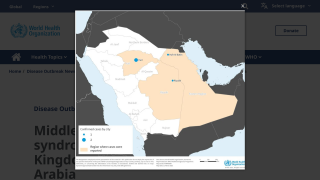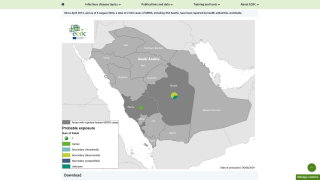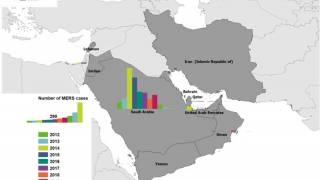Will This Coronavirus Follow Soccer Home

As the FIFA World Cup 2022 in Qatar comes to a close, various countries are concerned about a seldom discussed human coronavirus (hCoV) infecting event attendees and causing disease outbreaks back home.
According to The Sun reporting on December 11, 2022, the UK Health Security Agency (UKHSA) has urged clinicians to look out for people suffering from a fever and breathing difficulties.
"The risk of infection to UK residents is very low but may be higher in those with exposure to specific risk factors within the region, such as to camels," the UKHSA stated. It has also warned of person-to-person transmission of the Middle East respiratory syndrome coronavirus (MERS-CoV).
The UKHSA confirmed about 1,500 suspected cases of MERS have been tested in local labs since 2012.
Previously, one case of MERS-CoV was confirmed in Leeds in August 2018 by an individual who had recently flown from the Middle East. It was the first MERS-CoV case in the UK since 2013.
And in Australia, the government issued a notice on December 2, 2022, confirming anyone traveling from the Middle East, including those returning to Australia from attending the 2022 FIFA World Cup, should be aware of MERS.
Furthermore, reduce your risk of getting MERS by observing good hygiene practices, avoiding close contact with camels, and not consuming uncooked meat or unpasteurized milk, stated Australia in July 2022.
The good news from the World Cup event in Qatar is there have been no MERS cases reported as of December 12, 2022.
However, since 2012, about 2,600 MERS cases with 935 associated fatalities have been reported from 27 countries.
Most MERS cases (84%) have been reported from the Kingdom of Saudi Arabia.
Moreover, Qatar has reported 28 human cases of MERS and seven related fatalities.
The most significant MERS importation outbreak outside the Middle East was in the Republic of Korea in 2015.
By the outbreak's end, 186 laboratory-confirmed cases and 38 related fatalities had been recorded.
According to the U.S. Centers for Disease Control and Prevention, people commonly get infected with human coronaviruses 229E, NL63, OC43, and HKU1.
While the well-known SARS-CoV-2 coronavirus has an ample supply of preventive vaccines, no U.S. FDA-approved MERS vaccines are available today.
Several MERS vaccine candidates are conducting clinical research.
Other MERS information is posted at CoronavirusToday.
PrecisionVaccinations publishes fact-checked, research-based vaccine information manually curated for mobile readers.
Our Trust Standards: Medical Advisory Committee
























